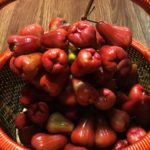
Thai Jackfruit Recipes, Health Benefits, and Nutrition
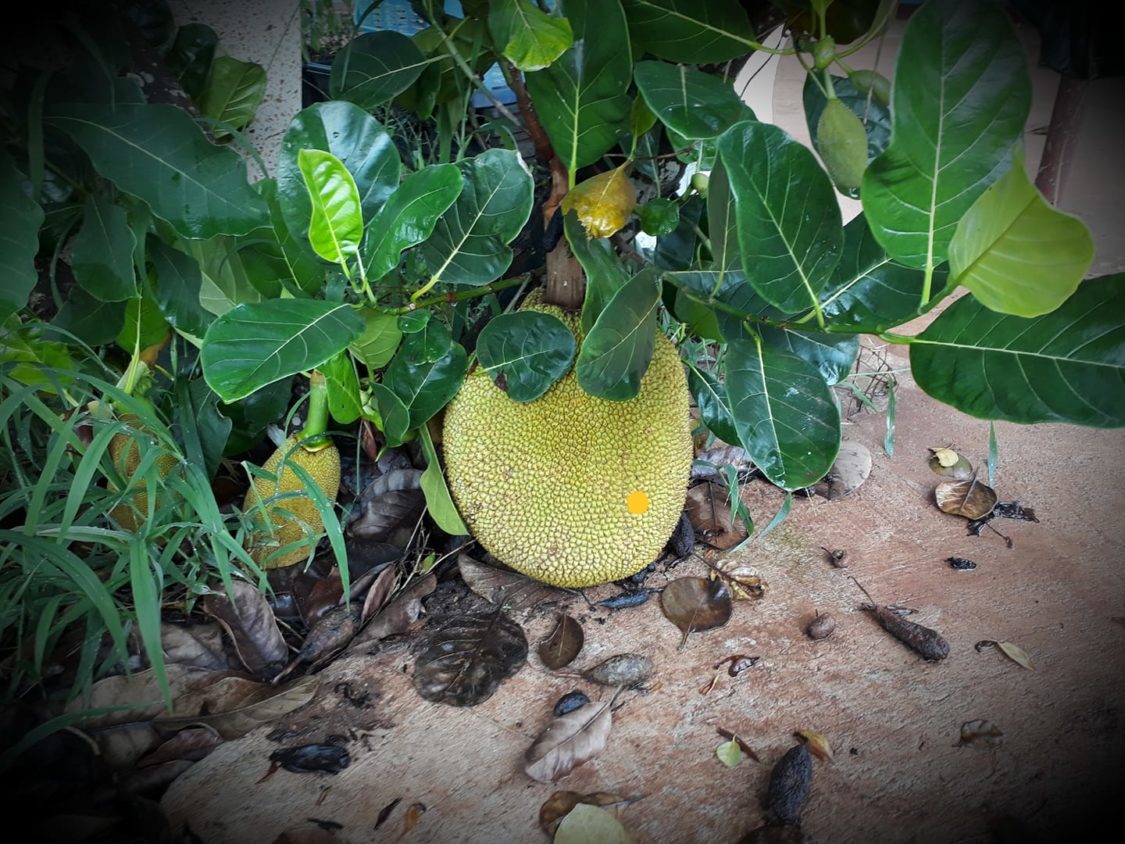
The jackfruit season in Northeastern Thailand (especially in provinces like Sakon Nakhon) begins March and continues through July. Jackfruit is one of Thailand’s most amazing fruits. And it is used in a variety of Thai dishes, desserts, and salads. It is a superfood, loaded with nutritional value and medicinal benefits (according to traditional Thai folk healers).
Thai Jackfruit Flavor & Nutritional Value
Thai jackfruit goes by the name “khanun” (ขนุน) in the Thai language. It has a flavor (when ripe) that has been described as a cross between a banana, mango, and apple. Sometimes unripe jackfruit is used in vegetarian dishes as a substitute for meat. But that tastes nothing like a ripe jackfruit, which in addition to being delicious is highly nutritious, and rich in a variety of vitamins, minerals, and antioxidants. Here are some of the key nutrients found in jackfruit:
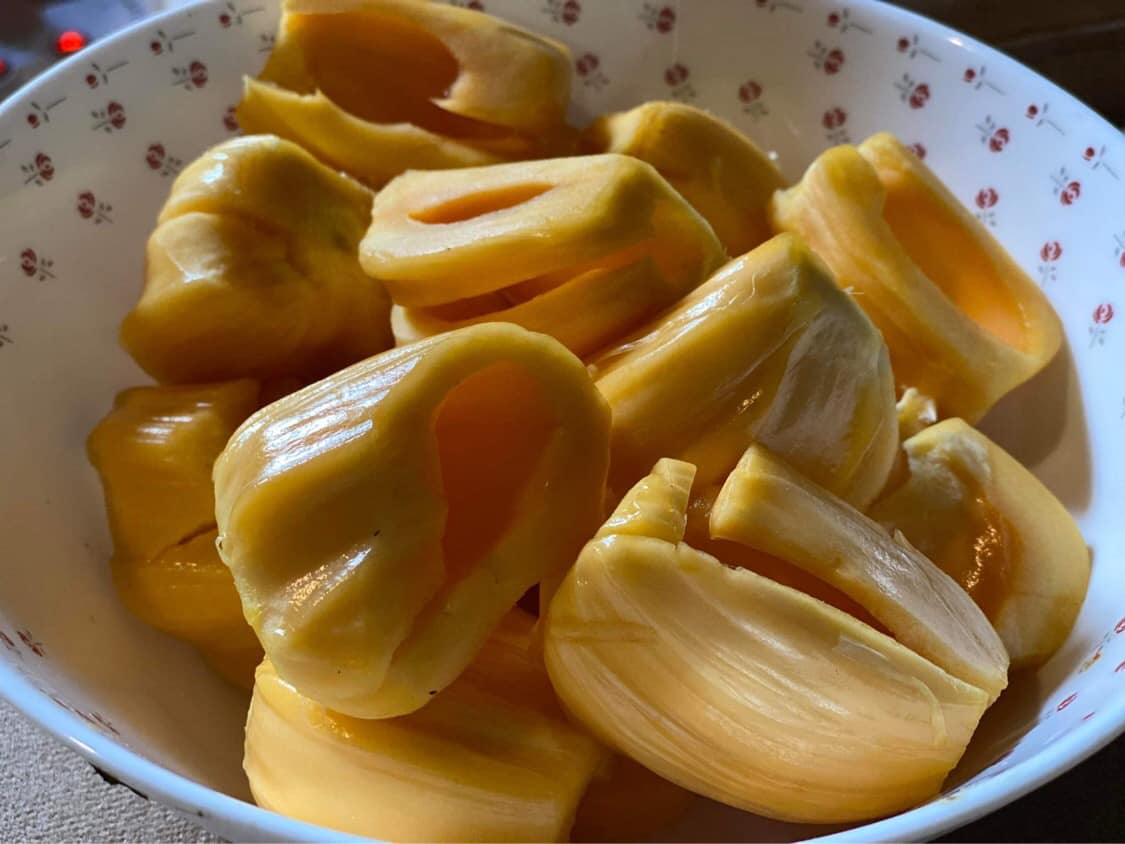
1. Vitamin C: Thai Jackfruit is an excellent source of vitamin C, with one cup (165 grams) providing approximately 25% of the recommended daily intake.
2. Fiber: Thai Jackfruit is high in fiber, with one cup (165 grams) providing approximately 3 grams of fiber, which is about 11% of the recommended daily intake.
3. Potassium: Thai Jackfruit is a good source of potassium, with one cup (165 grams) providing approximately 10% of the recommended daily intake.
4. Antioxidants: Thai Jackfruit is rich in antioxidants such as carotenoids, flavonoids, and phenolic compounds, which can help protect against oxidative stress and inflammation.
5. Protein: Thai Jackfruit is also a good source of protein, with one cup (165 grams) providing approximately 2.8 grams of protein.
Additionally, Thai jackfruit is low in calories and fat, making it a great choice for those looking to maintain a healthy diet. It is also gluten-free and rich in other beneficial nutrients such as iron, magnesium, and vitamin B6.
Thai Jackfruit Health Benefits
Since Thai Jackfruit has such nutritional value, it is not surprising that it has been used in traditional Thai medicine for a variety of purposes. Here are a few examples:
1. Digestive health: Thai Jackfruit is believed to have digestive properties and is used in Thai medicine to help relieve constipation and other digestive issues.
2. Immune system support: Thai Jackfruit is rich in antioxidants, which are believed to help boost the immune system and protect against disease.
3. Wound healing: Thai Jackfruit leaves are often used in traditional Thai medicine as a poultice to help speed up the healing of wounds and reduce inflammation.
4. Blood sugar control: Thai Jackfruit is believed to have blood sugar-lowering properties, and is often recommended in Thai medicine for people with diabetes.
5. Respiratory health: Thai Jackfruit is believed to have respiratory benefits and is used in Thai medicine to help relieve coughs, asthma, and other respiratory issues.
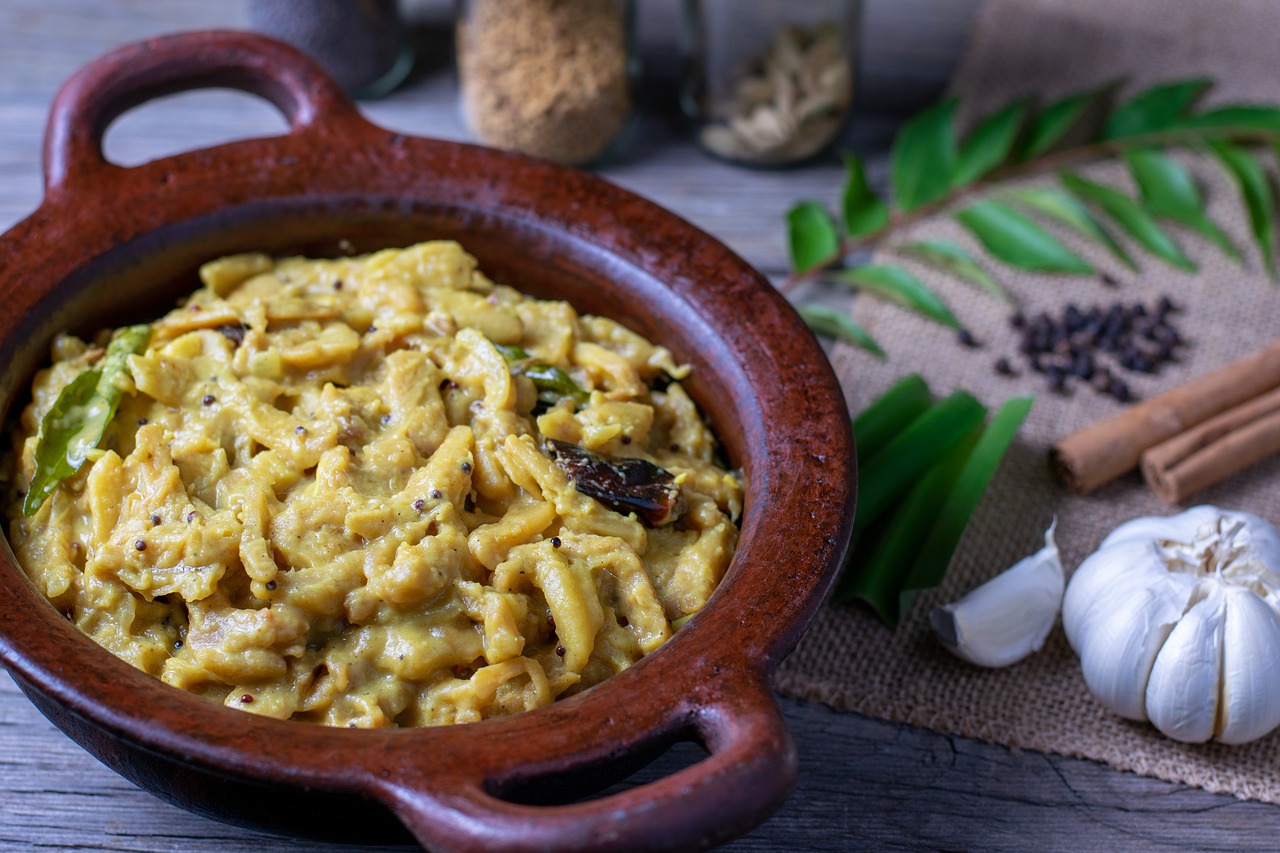
Thai Jackfruit in Curry & Thai Dishes
Gaeng Kanun: To make this savory Thai curry, the ripe fruit is simmered in a spicy coconut milk curry with herbs and vegetables. It is often served with rice or noodles and is a favorite among vegetarians and non-vegetarians alike.
Tod Man Khanun: This is a popular Thai appetizer made from mashed jackfruit mixed with herbs, spices, and breadcrumbs, formed into patties and fried until crispy.
Khanun Nung: This is a simple but flavorful dish of steamed jackfruit that is seasoned with garlic, soy sauce, and cilantro.
Khanun Tung: This is a dish where the jackfruit is cooked in a spicy and sour soup along with shrimp and mushrooms.
Khanun Pad Prik Gaeng: This is a spicy stir-fry dish made with jackfruit, red curry paste, and vegetables such as bell peppers and onions.
Khanun Kung: This is a salad made with jackfruit, shrimp, and herbs, dressed with a tangy and spicy dressing.
Khanun Sai Nam Pu: This is a spicy and sour salad made with jackfruit, crab meat, and herbs, dressed with lime juice and fish sauce.
Look up the names of these dishes online to find the detailed jackfruit recipes.
Thai Jackfruit for Dessert
Here are a few popular Thai desserts that are made with jackfruit:
Thong Yip Khanun: This is a traditional Thai dessert made from jackfruit and egg yolks. The egg yolks are mixed with sugar and then formed into small, flower-shaped cups. The jackfruit is cooked in a syrup made from palm sugar and water and then placed into the egg yolk cups.
Khanun Krok: This is a type of coconut pudding that is flavored with jackfruit. The pudding is made by combining coconut milk, rice flour, sugar, and jackfruit in a pan and then cooking until it thickens.
Kanom Chan Khanun: This is a layered dessert made from rice flour, coconut milk, and jackfruit. The layers are made by cooking the rice flour mixture with coconut milk and sugar and then adding the jackfruit to the top layer.
Khanun Ice Cream: This is a popular ice cream flavor in Thailand made from jackfruit puree mixed with cream and sugar.
Khanun Piek: This is a sweet and refreshing dessert made from jackfruit, water chestnuts, and tapioca pearls in a sweet syrup made from coconut milk and sugar.
Look up these desserts online to find step by step jackfruit recipes.
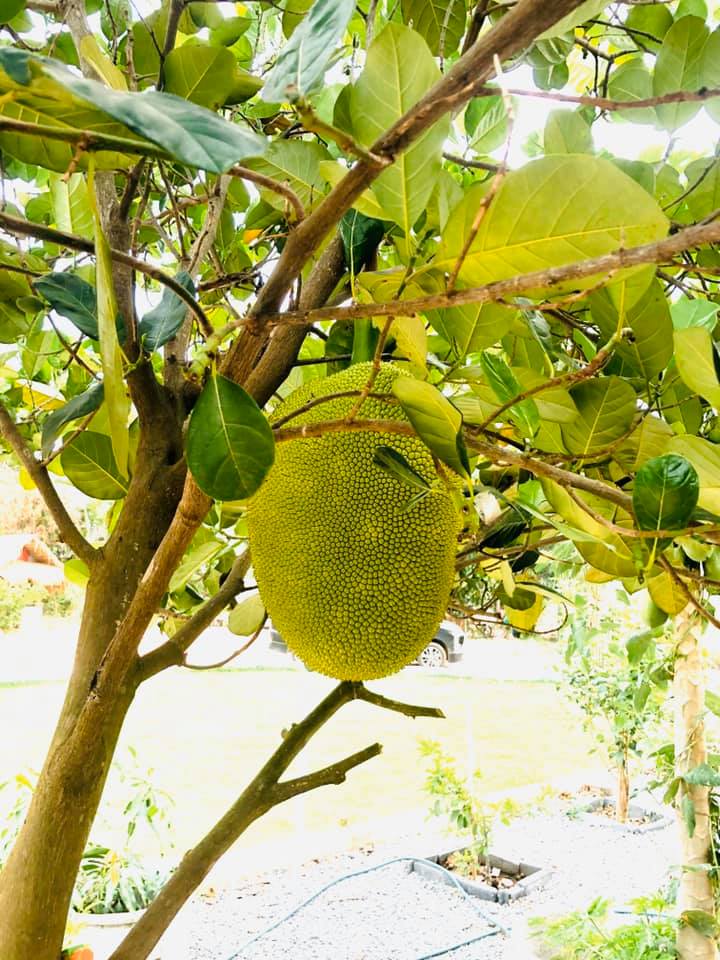
How to Peel a Thai Jackfruit
The Thai jackfruit is a large, oblong fruit that can weigh up to 80 pounds (36 kilograms). The outer skin of the fruit is green and covered in small, spiky bumps, while the inside is filled with yellow, fleshy pods that surround large seeds. Peeling a jackfruit thus can be tricky. But with the right technique, it can be done easily. Here are the steps to peel a Thai jackfruit:
1. Start by selecting a ripe jackfruit that is slightly soft to the touch and has a strong, sweet aroma.
2. Lay the jackfruit on a flat surface and use a sharp knife to cut off the stem and the bottom of the fruit to create a flat base.
3. Cut the jackfruit into quarters and then remove the core from each quarter by cutting around it with a knife.
4. Use your hands or a spoon to gently pry the fleshy pods away from the fibrous membrane that surrounds them. The pods should come apart easily, but be careful not to cut yourself on the tough skin.
5, Once all the pods have been removed, discard the skin and the core, and then rinse the pods in water to remove any residual sap.
To store the jackfruit, wrap the pods in plastic wrap or place them in an airtight container in the refrigerator for up to 5 days.
Overall, peeling a Thai jackfruit can be a bit time-consuming, but the sweet, delicious fruit inside is well worth the effort. (Watch a Video Here)
- The Royal Ploughing Ceremony in Thailand – A History - May 8, 2024
- Dying Well the Buddhist Way in Thailand - May 7, 2024
- Comforting Words for the Brokenhearted in Thailand - May 6, 2024



